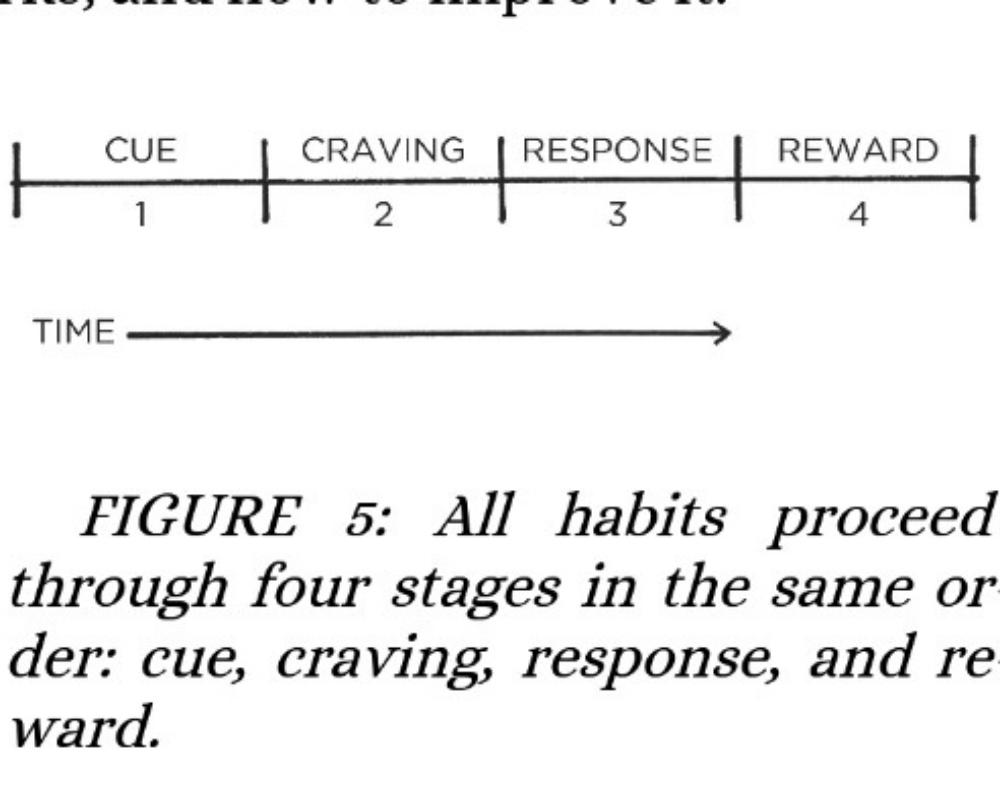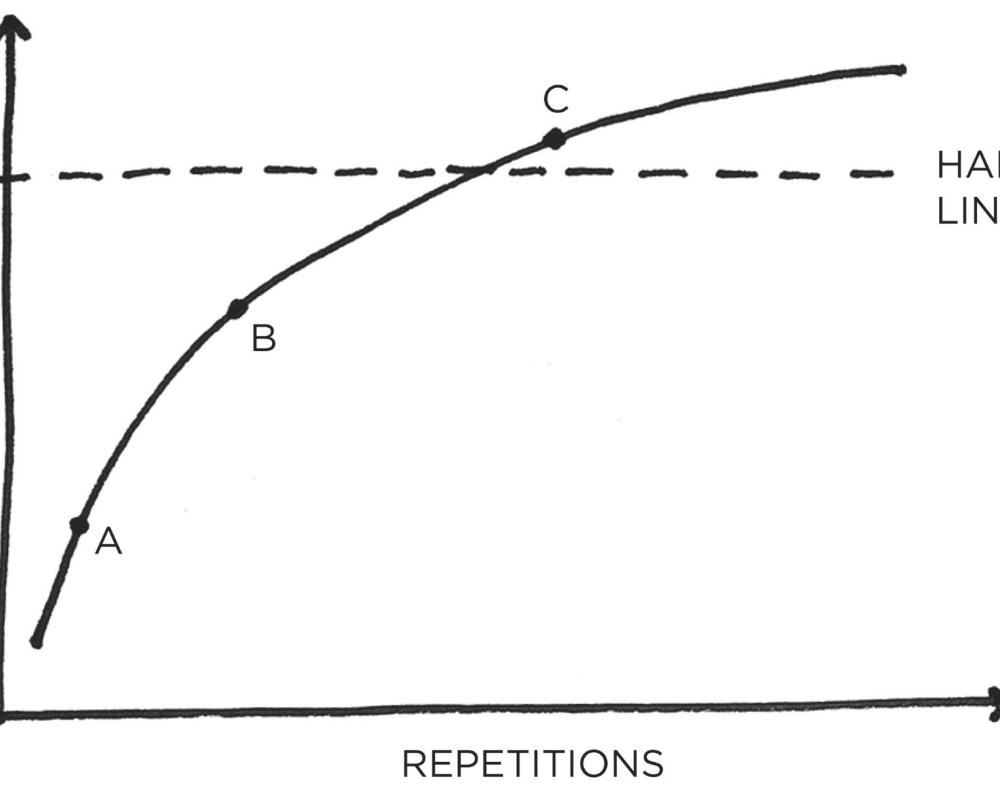Ashok Prajapati0042G's Key Ideas from Atomic Habits
by James Clear
Ideas, facts & insights covering these topics:
13 ideas
·1.53K reads
6
Explore the World's Best Ideas
Join today and uncover 100+ curated journeys from 50+ topics. Unlock access to our mobile app with extensive features.
The Four Stages Of Habit Build
First, there is the cue. The cue triggers your brain to initiate a behavior.
Cravings are the second step, and they are the motivational force behind every habit.
The third step is the response. The response is the actual habit you perform, which can take the form of a thought or an action.
The craving is about wanting the reward. The response is about obtaining the reward. We chase rewards because they serve two purposes: (1) they satisfy us and (2) they teach us.
21
211 reads
The 1st Law: Make It Obvious
HOW TO CREATE A GOOD HABIT
The 1st Law: Make It Obvious
1.1: Fill out the Habits Scorecard. Write down your current habits to become aware of them.
1.2: Use implementation intentions: “I will [BEHAVIOR] at [TIME] in [LOCATION].”
1.3: Use habit stacking: “After [CURRENT HABIT], I will [NEW HABIT].”
1.4: Design your environment. Make the cues of good habits obvious and visible.
The 2nd Law: Make It Attractive
The 3rd Law: Make It Easy
The 4th Law: Make It Satisfying
22
175 reads
Inversion of the 1st Law: Make It Invisi
HOW TO BREAK A BAD HABIT
1.5: Reduce exposure. Remove the cues of your bad habits from your environment.
Inversion of the 2nd Law: Make It Unattractive
Inversion of the 3rd Law: Make It Difficult
Inversion of the 4th Law: Make It Unsatisfying
23
154 reads
Temptation Bundelling 😍
Ronan Byrne, an electrical engineering student in Dublin, Ireland, enjoyed watching Netflix, but he also knew that he should exercise more often than he did. Putting his engineering skills to use, Byrne hacked his stationary bike and connected it to his laptop and television. Then he wrote a computer program that would allow Netflix to run only if he was cycling at a certain speed. If he slowed down for too long, whatever show he was watching would pause until he started pedaling again. He was, in the words of one fan, “eliminating obesity one Netflix binge at a time.”
20
126 reads
The 2nd Law: Make It Attractive
2.1: Use temptation bundling. Pair an action you want to do with an action you need to do.
2.2: Join a culture where your desired behavior is the normal behavior.
2.3: Create a motivation ritual. Do something you enjoy immediately before a difficult habit.
The 3rd Law: Make It Easy
The 4th Law: Make It Satisfying
19
117 reads
Inversion of the 2nd Law: Make It Unattractive
HOW TO BREAK A BAD HABIT
2.Reframe your mind-set. Highlight the benefits of avoiding your bad habits.
Inversion of the 3rd Law: Make It Difficult
Inversion of the 4th Law: Make It Unsatisfying
20
102 reads
The 3rd Law: Make It Easy
3.1: Reduce friction. Decrease the number of steps between you and your good habits.
3.2: Prime the environment. Prepare your environment to make future actions easier.
3.3: Master the decisive moment. Optimize the small choices that deliver outsized impact.
3.4: Use the Two-Minute Rule. Downscale your habits until they can be done in two minutes or less.
3.5: Automate your habits. Invest in technology and onetime purchases that lock in future behavior.
The 4th Law: Make It Satisfying
19
99 reads
Inversion of the 3rd Law: Make It Difficult
3.6: Increase friction. Increase the number of steps between you and your bad habits.
3.7: Use a commitment device. Restrict your future choices to the ones that benefit you.
Inversion of the 4th Law: Make It Unsatisfying
20
90 reads
Some Important Ideas And Examples (3rd Law)
Voltaire once wrote, “The best is the enemy of the good.”
If you want to master a habit, the key is to start with repetition, not perfection.
I refer to this as the difference between being in motion and taking action. The two ideas sound similar, but they’re not the same. When you’re in motion, you’re planning and strategizing and learning. Those are all good things, but they don’t produce a result.
20
90 reads
Some Important Ideas 2
Action, on the other hand, is the type of behavior that will deliver an outcome. If I outline twenty ideas for articles I want to write, that’s motion. If I actually sit down and write an article, that’s action. If I search for a better diet plan and read a few books on the topic, that’s motion. If I actually eat a healthy meal, that’s action.
20
79 reads
20
94 reads
The 4th Law: Make It Satisfying
4.1: Use reinforcement. Give yourself an immediate reward when you complete your habit.
4.2: Make “doing nothing” enjoyable. When avoiding a bad habit, design a way to see the benefits.
4.3: Use a habit tracker. Keep track of your habit streak and “don’t break the chain.”
4.4: Never miss twice. When you forget to do a habit, make sure you get back on track immediately.
Inversion of the 1st Law: Make It Invisible
1.5: Reduce exposure. Remove the cues of your bad habits from your environment.
19
78 reads
IDEAS CURATED BY
Curious about different takes? Check out our Atomic Habits Summary book page to explore multiple unique summaries written by Deepstash users.
Different Perspectives Curated by Others from Atomic Habits
Curious about different takes? Check out our book page to explore multiple unique summaries written by Deepstash curators:
2 ideas
8 ideas
Aakash Patil's Key Ideas from Atomic Habits
James Clear
1 idea
Pratik Sumbe's Key Ideas from Atomic Habits
James Clear
Discover Key Ideas from Books on Similar Topics
29 ideas
The Mentally Strong Leader
Scott Mautz
23 ideas
The Compound Effect
Darren Hardy
13 ideas
The Compound Effect
Darren Hardy
Read & Learn
20x Faster
without
deepstash
with
deepstash
with
deepstash
Personalized microlearning
—
100+ Learning Journeys
—
Access to 200,000+ ideas
—
Access to the mobile app
—
Unlimited idea saving
—
—
Unlimited history
—
—
Unlimited listening to ideas
—
—
Downloading & offline access
—
—
Supercharge your mind with one idea per day
Enter your email and spend 1 minute every day to learn something new.
I agree to receive email updates



